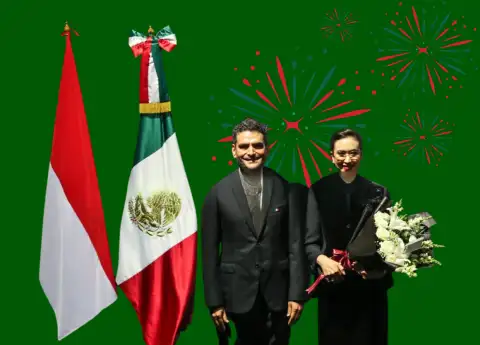BALI INTRODUCES INTERNATIONAL TOURISM TAX AMID CALLS FOR TRANSPARENCY
Navigating the Path to Sustainable Tourism: Bali's International Tourism Tax Sparks Calls for Transparency and Environmental Initiatives
In a move aimed at supporting the preservation of culture and the environment, the Bali Provincial Government has announced the introduction of an international tourism tax. Foreign tourists will be required to pay a one-time fee of Rp150,000, approximately US$10, in addition to the visa fee when entering the island. The tax policy is set to take effect on February 14, 2024.
The decision has sparked a discussion within the regional tourism business community, with calls for transparency in the management of the funds generated through this levy. Ida Bagus Agung Partha Adnyana, the chairman of the Indonesian Tourism Industry Association (GIPI) of the Bali Chapter, emphasized that the levy was instituted in accordance with the law to support the preservation of Bali's rich cultural heritage and the environment.
Speaking at a sharing session on public policy for Bali tourism development organized by the Nawa Cita Wisata Indonesia (NCPI) in Badung Regency on Monday, January 22, Agung Partha stated, "I also agree that the use of foreign tourist levy is focused on overcoming traffic jams." He urged tourism associations to play a pivotal role in discussions surrounding priority programs and to actively participate in monitoring the allocation and utilization of the funds generated through this levy.
"It is also necessary to establish a team that manages the funds. We hope that the levy program will be well-coordinated with the relevant parties so as not to reduce tourists' convenience during their visits," he added.
Ketut Yadnya Winarta, the head of the Bali Tourism Promotion Team, confirmed that the foreign tourist levy will be implemented starting February 14, 2024. "We have prepared the application, and it is ready to open in early February," he said.
Addressing concerns about the utilization of the foreign tourist fees, Yadnya explained that several programs have been outlined by relevant agencies. These programs will primarily focus on initiatives related to culture and the environment, with a special emphasis on waste management across the island.
As Bali prepares to implement this new tourism tax, the local community and businesses are anticipating positive outcomes that will not only support environmental initiatives but also enhance the overall tourist experience on the island. The success of this initiative hinges on the transparent and efficient management of the funds, as emphasized by key figures within the tourism industry.
#THE S MEDIA #Media Milenial #Bali #International Tourism Tax #Travel News #Tourism Levy #Cultural Preservation #Environmental Initiatives #Tourism Development #Transparency #Indonesian Tourism #Waste Management #Bali Tourism Promotion #Sustainable Tourism #Foreign Tourist Fee #Nawa Cita Wisata Indonesia #GIPI #Badung Regency























